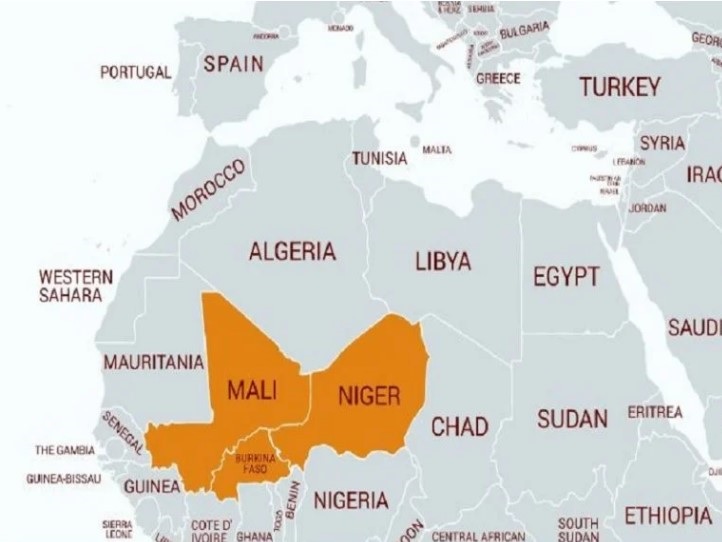
Amid efforts aimed at nationalization and economic development, the United States Africa Command (AFRICOM) slanders a leading member of the Alliance of Sahel States (AES)
Another plot to destabilize Burkina Faso was reported last week over the national television network in the West African state. Minister of Security Mahamadu Sana made the announcement to great dismay and outrage among the people inside the country, writes Abayomi Azikiwe, the editor of the ‘Pan-African News Wire’.
Sana noted that the culprits involved in the plot were receiving support from French-aligned interests operating from Ivory Coast.
A number of military officers along with former government officials were named in the conspiracy to remove the current government under Capt. Ibrahim Traore.
Several people have been arrested in the aftermath of the coup attempt which was scheduled to take place on April 16.
Since the rise of Capt. Ibrahim Traore to power on September 30, 2022, the country embarked upon a process of reclaiming the natural resources and national sovereignty of its territory and residents.
Traore heads the Patriotic Movement for Safeguard and Restoration (PMSR) which was established in early 2022 under the former leader Lt.-Col. Paul-Henri Damiba. The PMSR was established after the removal of civilian President Roch Christian Kabore.
Kabore and Damiba were overthrown due to the failure of their administrations to curb the rebel insurgencies which under the guise of Islamism, have killed civilians, military personnel and created lawlessness across approximately 40 percent of the country. The failure of French and U.S. military soldiers and advisors, ostensibly in the Sahel region to enhance the security capacity of African states, have proved an abysmal failure.
Burkina Faso has united with neighboring landlocked states of Mali and Niger to sign the Liptako-Gourma Charter in late 2023. Later the Alliance of Sahel States (AES) was formed in 2024 breaking away from the western-oriented Economic Community of West African States (ECOWAS).
The AES has drawn the ire of France, the former colonial and neo-colonial power, along with the United States. In neighboring Niger, the French and U.S. forces have been forced to withdraw while a Pentagon drone station was dismantled at the aegis of the current ruling Committee for the Safeguard of the Homeland (CNSP). These events have upended the plans of two leading imperialist states to maintain their dominance in the resource-rich Sahel region of West Africa.
In regard to the situation in Burkina Faso, the military leader of the U.S. Africa Command (AFRICOM) engaged in a verbal attack on Capt. Ibrahim Traore in a hearing before the Senate. General Michael Langley slandered Traore claiming that the resources from the sale of gold were being misused by the head-of-state.
These comments by Langley have been condemned throughout the African continent. In a report published by the Zimbabwe Mail, it says of the provocation:
“A firestorm of criticism has erupted across Africa following remarks by U.S. General Michael Langley, head of the United States Africa Command (AFRICOM), accusing Burkina Faso’s President, Captain Ibrahim Traoré, of misusing the country’s gold reserves for personal protection rather than national benefit. The comments were made during a recent U.S. Senate hearing, where General Langley alleged that Traoré had diverted vital national resources for his own security interests. The statement, swiftly picked up by African media and social platforms, has drawn sharp backlash from citizens, activists, and commentators across the continent. Many Africans voice their outrage, accusing the U.S. of meddling in the sovereign affairs of African nations and displaying double standards in its foreign policy.”
These false allegations by Langley must be viewed within the context of the recent destabilization campaign against Burkina Faso and its revolutionary government. Historically, the U.S. has been hostile towards any anti-imperialist and socialist-oriented states on the African continent.
During 2024, the government of Burkina Faso revised its mining code creating a new state-owned firm called Société de Participation Minière du Burkina (SOPAMIB). Through this public entity, the PMSR administration has been nationalizing mines owned by foreign corporations.
In a speech delivered over national television on April 28, Prime Minister Jean Emmanuel Ouedraogo announced that additional mines will be nationalized in the days ahead to generate more revenue for the government. These new policies have caused consternation among the mining firms which dominate the Burkina Faso extractive industries.
Two mines were taken over by SOPAMIB last year and additional seizures are designed to provide the necessary monetary resources to modernize the country. This same pattern of nationalization is being replicated within other AES partners.
A report published by mining.com says of the current situation in Burkina Faso:
“Gold prices have risen by over 25% this year, fueled by geopolitical instability and U.S. President Donald Trump’s erratic trade policies. Burkina Faso, which has been fighting Islamist militants since 2015, produced over 57 tons in 2023. Mining companies operating there include Canada’s IAMGOLD and Australia’s West African Resources Ltd. The new mining code prioritizes national expertise and local suppliers, part of what the government calls a revolution in how its mineral wealth is managed. Burkina Faso’s relations with traditional Western allies have deteriorated since the military seized power in two coups in 2022, and it has pivoted toward Russia for security and economic cooperation. Last week, it granted an industrial mining license to Russian miner Nordgold for a gold project in the Kourweogo province of Burkina’s Plateau-Central region.
Ouédraogo said existing state-controlled mining initiatives have been successful, with the National Precious Substances Company collecting over eight tons of gold in 2024 and more than 11 tons in the first quarter of this year, primarily from artisanal sources.”
Prime Minister Ouedraogo said in his April 28 address that for the first time in its history the country has set up a gold reserve. These measures are already enhancing the economy, which has been crippled by the insurgent attacks and the hostility directed towards the PMSR administration.

read more in our Telegram-channel https://t.me/The_International_Affairs

 10:43 04.05.2025 •
10:43 04.05.2025 •






















